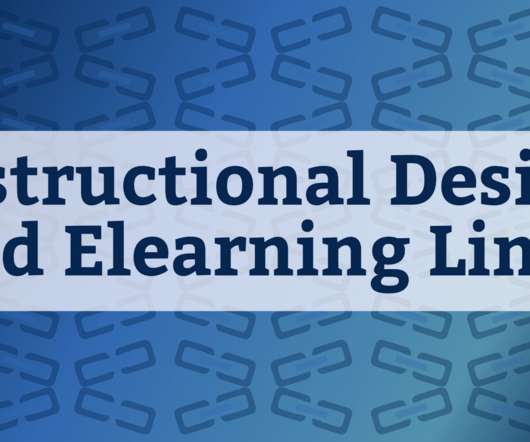Instructional Design Research, Tools, & More: ID Links 8/10/21
Experiencing eLearning
AUGUST 10, 2021
In First Principles of Instruction, Merrill identifies five core instructional design principles which he has synthesised from his review of all of these theories, frameworks, and models. Problem-centred: Learning is promoted when learners acquire knowledge and skill in the context of real-world problems or tasks.

















































Let's personalize your content